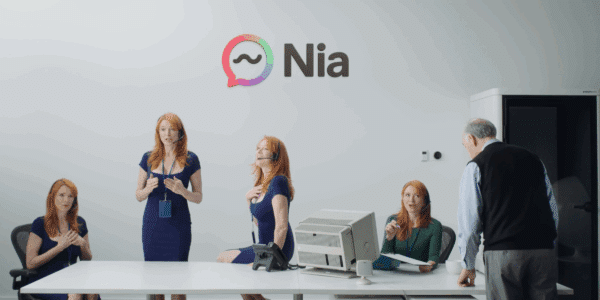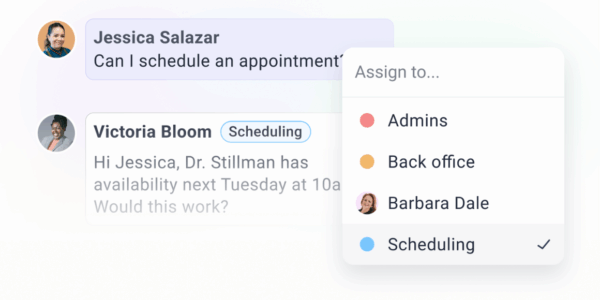What is patient engagement?
Patient engagement is the collaboration between provider and patient to improve patient health outcomes. Individuals using health services are increasingly asking for more responsive and transparent healthcare systems. It is no secret patients want to be involved in their care. According to several studies, those who play a role in making decisions regarding their treatment plan often are healthier, have a better experience, and can even see a reduction in costs. This process has several essential components, such as a patient’s knowledge, ability, and willingness to manage their care through communication. To achieve optimal patient engagement with minimal costs, a practice should implement a patient engagement software. This allows for seamless, instant communication between patient and provider.
Benefits of patient engagement
- Improve Health Outcomes – Improving patient involvement in the care process encourages them to actively engage their healthcare choices and well-being. This results in better overall health and fewer trips to the emergency room.
- Better Patient Experience – Providers treat patients in the most effective way possible, reducing time, costs, and improving the patient experience.
- Lower Costs – Patient engagement also has several fiscal benefits for a healthcare organization; engagement also reduces no-shows and improves the bottom line.
What are the barriers?
There are two different types of barriers that continue to deter the adoption of improved patient engagement, systemic and personal. From a systemic perspective, many traditional healthcare organizations are not designed to facilitate patient engagement. Whether it be a facility’s design or their lack of advanced technology, patient experience can be improved in many ways. On the other hand, a critical factor that may hinder patient engagement is limited health literacy and a patient’s misconception regarding their role in the treatment plan. Many patients fear being labeled “demanding” so they take a passive role, limiting patient engagement.
How to improve engagement
- Implement New Technology – Integrating new technology is one essential way providers can improve patient engagement levels. Modern patient engagement software allows patients and providers to converse immediately with minimal effort required, all while following HIPAA regulations.
- Personalize Interactions – Today, consumers expect everything to be tailored specifically to their individual desires. In healthcare, where services are deeply personal, this is even more important. Personalization will show patients you care about them, and they are more than just a number, increasing the likeliness they engage with your practice.
- Change Patient Perceptions – To have successful patient engagement, both providers and patients need to understand that mutual engagement and communication benefit both parties. The current mindset of allowing the provider to make all of the decision must undergo a shift toward both parties being able to take part in the decision-making process.
- Maintain Contact With Patients – If you do not communicate with your patients, why would they communicate with you? Ensuring patients take preventative measures for the betterment of their health and visit the emergency room only when a trip is necessary are important for your practice. To do this, maintain contact with your patients through a patient engagement software. A simple message checking in and asking for updates from a patient goes a long way.
Components of patient engagement software
- Two-Way Secure Messaging: Message patients at the tap of a finger without worrying about privacy or if your message was delivered.
- File Delivery: Share X-rays, treatment plans, medications, and other protected health information with patients.
- Cross-Platform Support: Enable providers to use a variety of mobile devices or web-based interfaces to support instant communication.
- Broadcast and Reminder System: Instantly send a general notification to many patients at once or personalize reminders for specific patients.
- HIPAA Compliance: Adhere to all security standards set forth in the healthcare industry and ensure private conversations with patients remain confidential.
Schedule a demo today to learn more about our patient engagement software!



